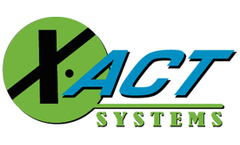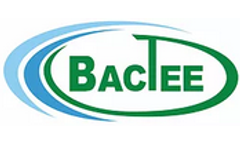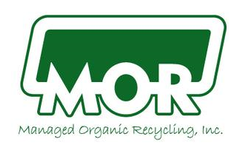Composting In The Subarctic Operations Articles & Analysis
13 articles found
In China, a 3m x 12m (10’ x 40’) BioReactor is composting chicken manure. The manure is retained in the composting system for 5 days. ...
The other approach is to place the composter in a sheltered area. In subarctic or arctic climates, maintaining composting temperatures during the winter season can be challenging when outside temperatures are regularly below -15°C ( 5°F) – leaving limited options for (sub)arctic composting. ...
Organic materials have been composted since there was organic matter to compost. It is nothing new. However, it still can be challenging to compost properly. That is, to produce something that is safe and useful as a soil amendment. This is what we were trying to achieve when we designed the Actium Compost Drums. They can accomplish this relatively easily. with a minimum amount of labour. ...
Why was a composter needed in a remote subarctic community? Fort Albany First Nation (also known as Peetabeck) is a remote and subarctic fly-in community of 900 people. ...
GFL Delta is a composting facility owned and operated by GLF Environmental, and serves the greater Metro Vancouver area. The facility first opened in 2007, mostly handling food industry and agricultural waste. The facility continued to grow to processes approximately 90,000 tons of organic ...
Wasatch Integrated Waste Management District utilizes the Aerated Static Pile (ASP) Composting System designed by Managed Organic Recycling, Inc. The system was installed to reduce odors that occured during the previously used open windrow composting method. Phase one is currently under construction with completion estimated by Summer of 2013 and Phase two will commence with the possible ...
There are many factors influencing the process of composting organic waste. This paper provides an experimental and theoretical evaluation of the leaf composting process to elucidate the importance of these various factors during composting of leaves. The analysis is performed specifically for the environmental conditions encountered in cold climates. Theoretical models are developed to evaluate ...
Composting kinetics modeling is necessary to design and operate composting facilities that comply with strict market demands and tight environmental legislation. Current composting kinetics modeling can be characterized as inductive, i.e. the data are the starting point of the modeling process and determine the type of model used. It is argued that the inductive empirical approach has been ...
Executive Summary 1. Description This report presents the findings of research undertaken by WRc, under contract to the Waste andResources Action Programme (WRAP). The research analysed the market potential for low grade composted materials in the UK, taking the risks associated with their use in different applications into account. It also assessed the viability of introducing standards for ...
ByWRC Ltd
The environmental problems of urban areas extend over a wide range of spatial scales; i.e., the household, the place of work, the neighbourhood, the city, the wider region, and the world. In rapidly growing cities of the developing world, urban solid waste management (SWM) is currently regarded as one of the most immediate and serious problems faced by urban governments. Inadequate or unavailable ...
Because the solid wastes of Asian cities are typically comprised of 70-85% organics, dirt and dust (Furedy, 1989b), composting has long been considered an interesting option to reduce the amounts of waste to be transported and disposed of in landfills. Furthermore, composting makes use of natural resources (i.e., the organic materials in wastes) that would otherwise be wasted. However, ...
Composting is a strongly emerging option in waste management in Austral-asia. It has been widely acknowledged that a successful integrated waste management strategy must adequately address the organic waste stream. Composting is the most economical, efficient and ecologically sustainable option to deal with organic waste if properly managed and economically and socially integrated into a ...
The new Paradigm in waste management promotes attitudes and processes that conserve resources and reduce pollution. Under this philosophy, organic waste is increasingly recognised as a recyclable material, a useful resource, making composting one of the key elements of modern waste management. As the composting industry is expanding rapidly there is a growing need for a simple, fast, relatively ...







